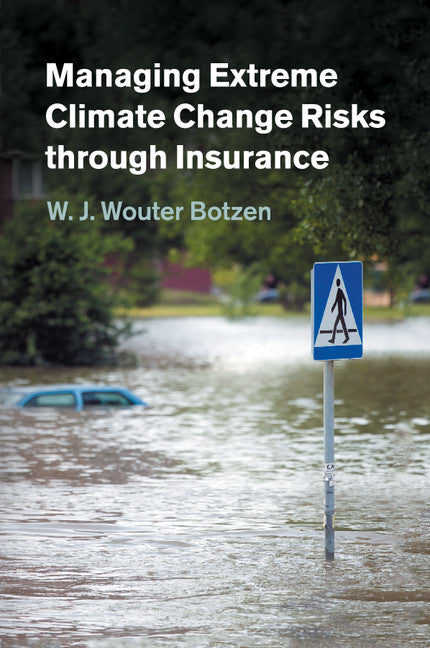Freshly Printed - allow 8 days lead
Couldn't load pickup availability
Managing Extreme Climate Change Risks through Insurance
An examination of how insurance arrangements can contribute to societies' management of the risks of natural disasters in a changing climate.
W. J. Wouter Botzen (Author)
9781316600887, Cambridge University Press
Paperback / softback, published 21 January 2016
454 pages, 28 b/w illus. 5 maps 53 tables
22.9 x 15.2 x 2.3 cm, 0.6 kg
'This marvelous book, written in the Netherlands which is famous for taking land from the sea, makes Nobel-awarded risk theories tractable for managing water damage and climate change. It is a must-read for researchers and managers of risks of natural disasters.' Peter P. Wakker, Professor of Decisions Under Uncertainty, Erasmus School of Economics, Erasmus University, Rotterdam
In recent years, the damage caused by natural disasters has increased worldwide; this trend will only continue with the impact of climate change. Despite this, the role for the most common mechanism for managing risk - insurance - has received little attention. This book considers the contribution that insurance arrangements can make to society's management of the risks of natural hazards in a changing climate. It also looks at the potential impacts of climate change on the insurance sector, and insurers' responses to climate change. The author combines theory with evidence from the rich experiences of the Netherlands together with examples from around the world. He recognises the role of the individual in preparing for disasters, as well as the difficulties individuals have in understanding and dealing with infrequent risks. Written in plain language, this book will appeal to researchers and policy-makers alike.
1. Introduction: climate change and natural disaster risk management
2. Climate change impacts on the insurance sector
3. Climate change and future costs of natural disasters
4. Climate change adaptation through insurance against flooding
5. Dealing with uncertainty in flood risk management
6. Damage mitigation measures at the household level and climate change adaptation
7. Insurance incentives for homeowners to invest in adaptation
8. Bounded rationality and demand for flood insurance
9. Individual perceptions of flood risk
10. WTP for insurance against low-probability flood risks
11. Market shares of insurance against flood risk under climate change
12. Conclusions.
Subject Areas: Natural disasters [RNR], Insurance & actuarial studies [KFFN], Finance [KFF], Environmental economics [KCN]


